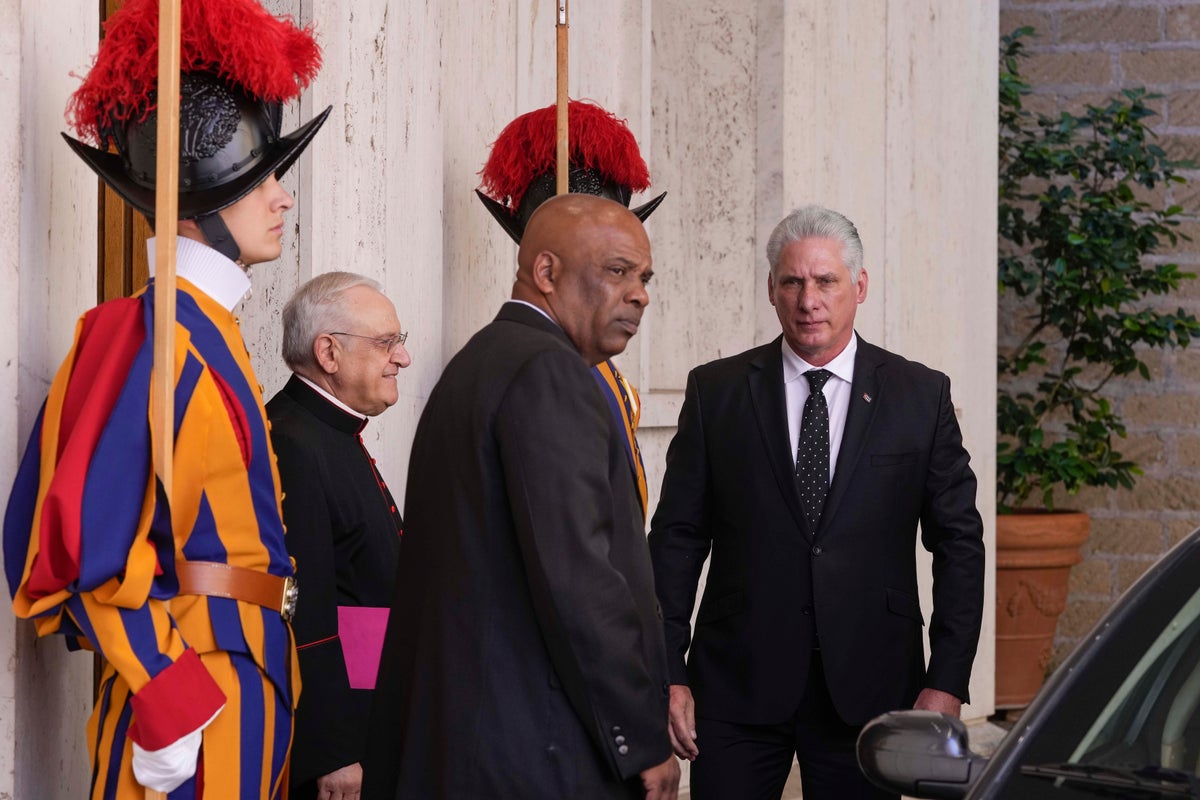
Pope Francis, in his first full week back at the Vatican following abdominal surgery, met on Tuesday with Cuba’s president, part of the Holy See's attention to the communist-led Caribbean island nation.
The Holy See’s brief statement of the private meeting with President Miguel Diaz-Canel gave no details of what the pontiff and the Cuban leader discussed. But it mentioned “the importance of the diplomatic relations between the Holy See, evoking among other things the historic visit of St. John Paul II in 1998," during a subsequent meeting with the Vatican’s secretary of State, Cardinal Pietro Parolin.
The prelate and the Cuban leader also discussed Cuba's "situation and the contribution that the Church offers, especially in the sphere of charity,'' the statement said.
Cuba has been struggling through an economic crisis.
Francis visited Cuba in 2015, as part of the Vatican’s drive to encourage better international relations. That quest included that 1998 papal pilgrimage, the first-ever by a pontiff, to Cuba.
Parolin and Diaz-Canel also discussed “some international themes of reciprocal interest,” but the Vatican didn't specify which ones. “The importance of continuing the commitment to always favor the common good” was also stressed, the Holy See said.
Doctors have urged 86-year-old Francis to pace himself as he recovers from the June 7 operation to repair a hernia and remove painful scarring from previous surgeries.
Heeding their advice, Francis won’t hold his traditional Wednesday morning audience with pilgrims and tourists in St. Peter’s Square this week. The weekly appointments in past summers have been suspended for the month of July, in deference to hot weather and to give the pontiff a bit of a break.
At the far end of a boulevard that leads to St. Peter's Square, a handful of protesters demonstrated against the pope's receiving the Cuban leader. They held asking for human rights to be respected in Cuba and the release of political prisoners there.
Earlier this year, a papal envoy to Cuba pressed Cuban authorities to release Cubans who had been jailed and grant amnesty to those sentenced for participating in protests on the island in 2021.
St. John Paul II used his pilgrimage to Cuba to encourage the nation to open itself more fully to the world and for other nations to reciprocate.
The Vatican in general expresses skepticism regarding economic sanctions, such as those applied by U.S. administrations against Cuba.







